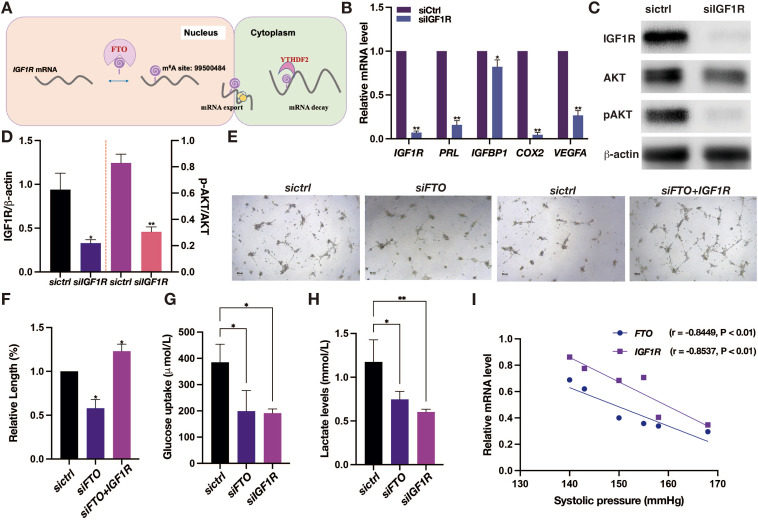
Exploring the role of FTO in preeclampsia pathogenesis: Insights into m6A modification and decidualization


Preeclampsia (PE) poses a grave threat to both maternal and fetal health, yet its intricate cellular and molecular mechanisms remain shrouded in mystery.1 Recent research has increasingly focused on the role of maternal-impaired decidualization in the development of PE.2 In this context, the obesity-associated protein FTO has emerged as a significant factor, acting as a demethylase for N6-methyladenosine (m6A) modification. Our study aimed to unravel how FTO enhanced glycolysis and vascular formation during decidualization. Mechanistically, FTO reduced the m6A methylation of IGF1R (insulin-like growth factor 1 receptor) transcripts, thereby stabilizing IGF1R and augmenting its expression through a YTHDF2 (YTH m6A RNA binding protein F2)-dependent pathway, an essential process for stromal cell decidualization. Additionally, IGF1R was required for regulating COX2 (cytochrome C oxidase assembly factor) and VEGFA (vascular endothelial growth factor A) expression, while also modulating AKT (protein kinase B) activity during decidualization. Intriguingly, we unearthed that FTO and IGF1R expression in the decidua were negatively correlated with systolic blood pressure. In summary, our study uncovers a novel mechanism involving FTO-mediated m6A demethylation orchestrating IGF1R mRNA modification through YTHDF2, thereby offering promising avenues for targeted FTO modulation in the treatment of hypertensive disorders in PE, ultimately translating to improved outcomes for both mothers and fetuses.
